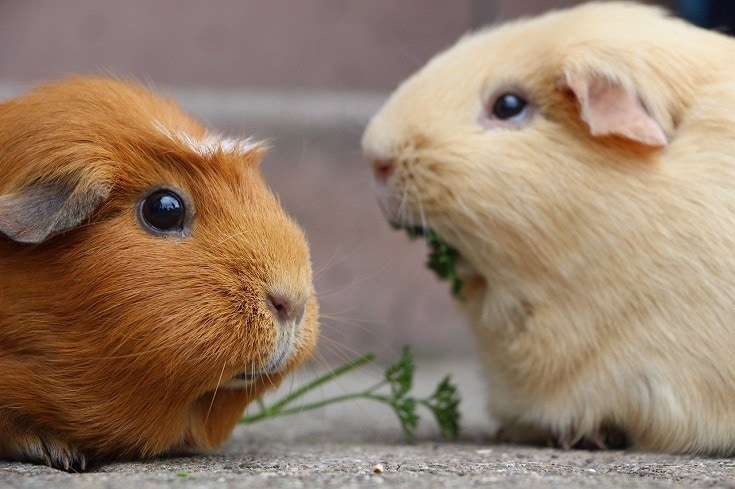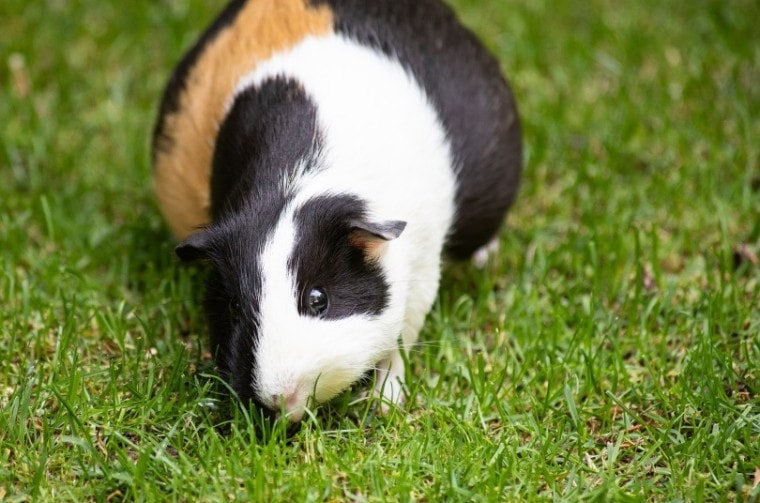
If you’re curious about guinea pig pregnancy, you might be wondering if there are signs that a female guinea pig is expecting. Although the signs of pregnancy in guinea pigs are often subtle and only overtly obvious during the late stages of pregnancy, they are nonetheless observable. Let’s talk about these and a few other things you might need to know about guinea pig pregnancy.
For animal welfare, veterinarians do not recommend or encourage breeding guinea pigs. Breeding often reduces the lifespan of the females, and finding responsible owners for young guinea pigs can be a daunting task. Guinea pigs can also indiscriminately breed with their offspring, siblings, or parents. Breeding these animals is a task best left to an experienced breeder.
Spaying or neutering a guinea pig can be done by vets who are experienced with small mammals. It is often advised to neuter a male, though surgeries may sometimes be successfully performed on female guinea pigs too.
The safest, easiest, and least expensive way to prevent breeding is to house male and female guinea pigs separately.
The information in this article is for informational purposes only. At Pet Keen, we do not encourage breeding guinea pigs.
The 5 Signs Your Guinea Pig Is Pregnant
When they’re in early pregnancy, there aren’t many signs of a guinea pig expecting a litter. However, if you frequently observe a female’s habits, you might be able to notice a few subtle signs.
1. Contact With an Intact Male
Probably the most telling sign of pregnancy in a female guinea pig is that she was recently in close contact with an unneutered male. Male guinea pigs (also called boars) are sexually mature and capable of breeding at 2–3 months. Females are sexually mature when they are around 2 months old. Therefore, if a female has been in contact with an intact male, the odds are that she is pregnant.
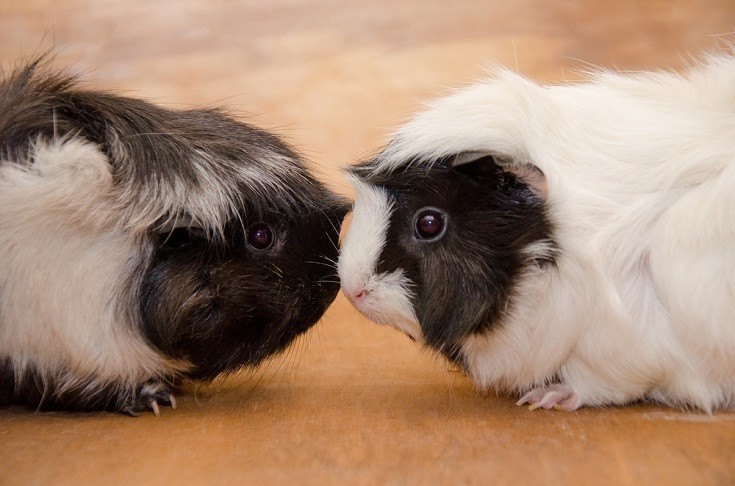
2. Gaining Weight
The first physical sign of pregnancy will be weight gain. You may not be able to tell right away just by looking at a guinea pig, though. If you have the habit of weighing your guinea pig daily (maybe you’re keeping an eye out for pregnancy), you will notice it early on, as just a few grams of weight gain each day.
On average, guinea pigs gain around 80% of their body weight as pregnancy weight. This means they can roughly double in weight throughout the course of a pregnancy.
3. Eating and Drinking More
Of course, weight gain also happens when a guinea pig eats more. This may be one of the subtler indicators of pregnancy. If a female piggy is given a varied diet of pellets, fruits, and veggies, she may begin consuming more than normal as her pregnancy progresses. Although an average guinea pig eats about 1 cup of vegetables per day, a pregnant guinea pig may eat up to 1 ½ cups per day.
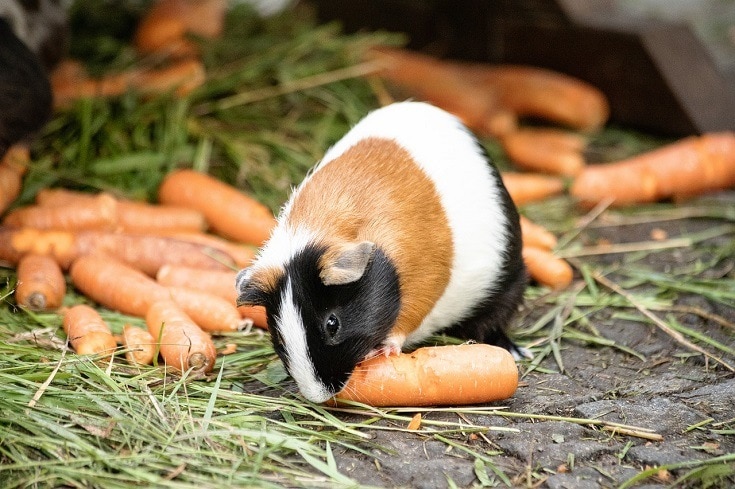
4. Larger Abdomen
At first, you won’t be able to tell the difference in a pregnant guinea pig’s growing belly. Later on in the pregnancy (by day 50–60), though, you will notice that the abdomen is getting bigger. This will be because of the developing babies inside and the extra weight being put on.
5. Feeling the Babies
Sometimes in pregnant guinea pigs, you can actually feel the miniature piglets forming inside of the mother. With one hand and without applying pressure, gently feel the sides of the sow. If there are piglets, you will be able to feel little lumps. This can also be done by gently holding a piggy by the shoulders with one hand and feeling her belly with the other.
If you do feel lumps, it would be wise to take the guinea pig to the vet to check for pregnancy. If she is not pregnant and has lumps, it could mean a serious health problem. Either way, it’s a good idea for a vet to check it out in either case.
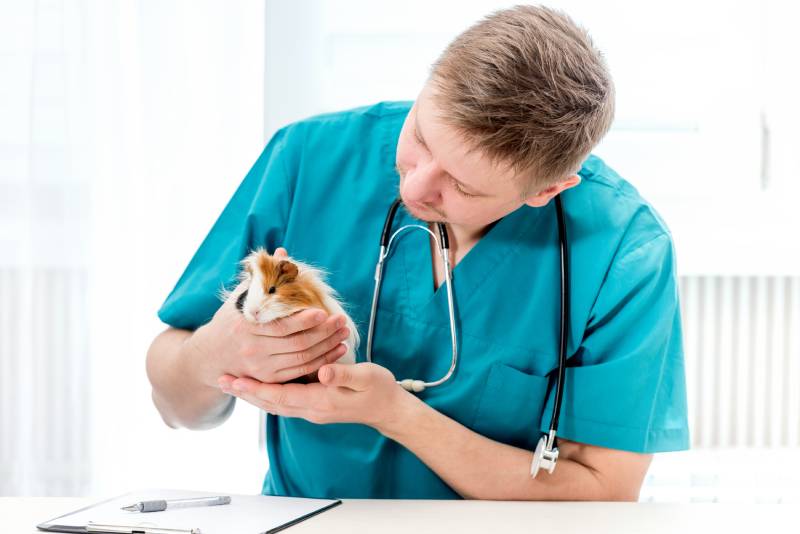
Guinea Pigs Can Get Pregnant Early and Easily
Guinea pigs mature early in many ways. When they are born, they are born with hair, teeth, and the ability to walk around. They can even eat solid food when they are around 5 days old.
With all this said, don’t be surprised if a guinea pig falls pregnant while she still seems young. Also, don’t be surprised if she gets pregnant again after just giving birth, as female guinea pigs go into heat right after they give birth.
Final Thoughts
If you suspect that a piggy is pregnant, we hope that this article has been helpful to you. Although guinea pigs make great pets, they are quite prolific and can start to reproduce at a very young age. Therefore, it is best to house males and females separately.
Featured Image Credit: minka2507, Pixabay






